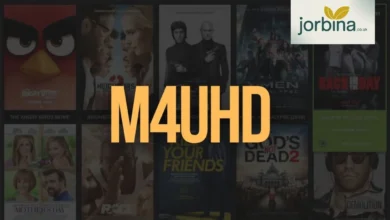7 Shocking Truths About Entertainment in the Digital Age

Have you noticed that watching television no longer feels like watching television? To see your favorite show a few years ago, you had to wait until Thursday night. An entire season can now be streamed in a single weekend. Movies arrive on streaming services only a few weeks after they open in theaters. At midnight, musicians unexpectedly release their albums on the internet. Even video games are more than just cartridges we play; they are worlds we inhabit.
This isn’t a small adjustment. It’s a complete rewiring of how we create, share, and experience stories. The digital age didn’t quietly arrive. It crashed through the front door and left the entertainment industry scrambling to keep up.
Let’s walk through seven truths that explain how deep this change goes, then we’ll tackle some common questions and point you toward further reading.
Truth 1: Power Moved from Studios to the Audience
What was made public in the past was determined by record labels, studios, and networks. You had to wait for the fall lineup if you wanted a new show. You had to go to the record store to get a new album. That time is over.
On-demand and streaming services changed the game. We no longer wait passively for programming. When, where, and how we watch are all up to us. Because Netflix and Disney+ based their business models on our schedules rather than theirs, binge-watching became the norm.
The audience now shapes the market. Data on what we watch, pause, or skip influences whether a series gets renewed. We’re not just consumers. We’re decision-makers.
Truth 2: Money Flows Differently
The financial engine behind entertainment shifted. Ticket sales and television ratings once dominated. Today, revenue comes from a mix of subscriptions, ads, sponsorships, and direct support.
Consider YouTube creators. Many earn a steady income from ad revenue. Some add Patreon subscriptions where fans contribute monthly. Others launch branded merchandise or sign sponsorship deals. The digital ecosystem doesn’t depend solely on box office weekends or TV ad slots.
Independent artists and small studios thrive in this new setup. They don’t need a blockbuster budget to build an audience. They need a loyal community willing to support their work.
Truth 3: Attention Became the Most Valuable Currency
We used to pay with money. Now we pay with minutes. Every app, every service, and every platform competes for our attention. That’s why your show auto-plays the next episode, why your feed scrolls forever, and why notifications pop up to pull you back.
The competition is brutal. A streaming service isn’t just up against rival shows. It’s competing with podcasts, video games, TikTok clips, and even sleep. Netflix once admitted that its biggest competitor is not another platform but the hours we need to rest.
In this environment, entertainment doesn’t just entertain. It hooks, it nudges, and it tries to keep us locked in. That raises questions about how much control we really have over our own time.
Truth 4: The Line Between Audience and Creator Disappeared
Not long ago, creating content required access to expensive equipment or industry connections. Today, a teenager with a smartphone can reach millions overnight.
Platforms like TikTok, Instagram Reels, and YouTube Shorts democratized creation. Memes, dances, skits, and commentary flow directly from people’s bedrooms into the global spotlight. Viral moments no longer depend on studios. They depend on the creativity of everyday people.
This truth shocked traditional industries. Professional entertainers now share space with independent creators who build massive fan bases without a record label, a production studio, or even a budget.
Truth 5: Old Gatekeepers Lost Their Monopoly
There was a time when a handful of executives acted as the gatekeepers of entertainment. They decided which scripts were produced, which musicians got signed, and which shows aired. That control no longer exists.
Crowdfunding platforms allow fans to fund projects directly. Self-publishing and digital distribution make it possible for artists to bypass traditional routes. Musicians drop songs on Spotify or SoundCloud without waiting for a label. Independent filmmakers upload movies to Vimeo or Prime Video.
The audience, not the boardroom, now decides who succeeds. This has opened doors for voices and stories that would never have made it through the old system.
Truth 6: Technology Shapes the Story
It’s not just about delivery. Technology changes the actual content we consume. Special effects push the limits of imagination. VR concerts allow fans to attend live performances without leaving their living rooms. Video games now blur the line between entertainment and social platforms.
Games like Fortnite and Roblox are more than games. They host concerts, movie trailers, and social gatherings. They’re ecosystems where entertainment expands beyond the traditional boundaries of music or film.
Artificial intelligence also plays a growing role. Algorithms recommend shows and songs based on our behavior. Some companies even use AI to write scripts or generate music. Technology is no longer backstage. It’s part of the show.
Truth 7: The Future Will Redefine “Entertainment”
If the past decade was disruptive, the next may be unrecognizable. AI is advancing fast enough to create lifelike characters and scripts. The metaverse promises shared digital spaces where people work, play, and consume stories together.
Imagine watching a movie where the ending changes based on your choices. Picture concerts featuring digital avatars of artists who aren’t even present. Think about actors competing with AI-generated performers. These are not distant possibilities. They are already being tested.
The question is no longer whether entertainment will change. The question is how far it will go and whether audiences will embrace or resist the shift.
Types of Entertainment in the Digital Age
Entertainment today covers far more ground than in the past. It includes:
- Streaming shows and movies
- Video games and esports
- Podcasts and audiobooks
- Virtual and augmented reality experiences
- Social media content
- Live-streamed concerts and events
Even casual scrolling on platforms like Instagram or TikTok counts as entertainment. Wikipedia’s entry on “digital entertainment” outlines just how wide the spectrum is, and if you check Google Scholar for “A paradigm shift in the entertainment industry in the digital age: A critical review,” you’ll find plenty of academic perspectives on these changes.
FAQs
What is digital entertainment?
Digital entertainment refers to any form of media accessed through digital platforms. Examples include streaming movies, playing online games, listening to podcasts, or watching YouTube videos.
What is the concept of the digital age?
The digital age is the period defined by widespread internet use, digital devices, and online platforms. It reshaped communication, business, education, and, of course, entertainment.
How is digital technology used in entertainment?
Digital technology delivers content through streaming services, supports advanced gaming engines, powers VR and AR, and enables instant global distribution. It also drives algorithms that shape what we see.
What will entertainment be like in the future?
Expect more personalized, interactive experiences. AI and VR will play larger roles. Stories may adapt in real time, and digital avatars might perform alongside human artists.
What are the types of the digital age?
Scholars often divide the digital age into phases: early internet use, the rise of social media, the dominance of streaming, and now the AI-driven stage. Each era changed how people consume and create entertainment.
Entertainment in the Digital Age PDF
For readers who want to revisit these insights later, creating an “Entertainment in the Digital Age PDF” is helpful. Educators, students, and researchers often save articles like this for reference. Academic databases like Google Scholar are also packed with deeper studies on how digital culture impacts society.
Wrapping It Up
Entertainment in the digital age is not just about new gadgets or apps. It’s about a power shift from producers to audiences, from old gatekeepers to fresh voices, and from passive viewing to interactive experiences.
We’re living through one of the largest cultural transformations of our time. What once felt predictable is now unpredictable. The stage is bigger, the players are many, and the future is unwritten.
So here’s the real question. Do we sit back and watch this story unfold, or do we step in as creators and shape the next chapter ourselves?



